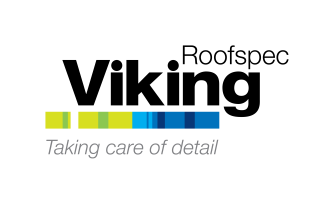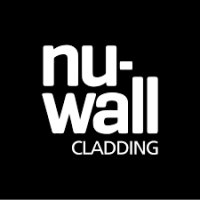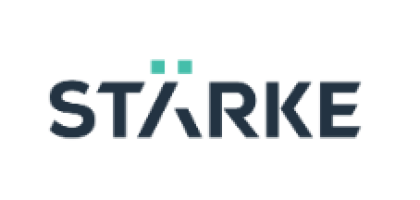Ethics & code of practice
Ethics
As of 1 April 2018, please register for this E-learning course:
RICS Professional Ethics (NZIBS Discount)
All of us face difficult choices in our professional lives. This commonly happens near the beginning of a new job, perhaps even when the potential client starts explaining the details of their situation. It is an oversimplification to say the only real decision to be made is “Do I take this job, or not?” However, in the end it does come down to just that: we can choose to say “No”.
So what might make us do that? The obvious answers include: we simply don’t have the time, knowledge, experience, skills, expertise, etc. Then it is a relatively easy choice.
Beyond that, we might step back when something feels not quite right about the situation . This is when ethical boundaries may be getting pushed and includes potential “conflicts of interest.”
To start with, here are a few questions which may be helpful to ponder:
Are you considering working for more than one party associated with the same job?
If so, do all the parties you are associated with agree? Have you got that in writing?
Do you always get your terms and conditions signed before you offer advice?
Are you sure other relevant parties (e.g. a Judge) will agree that your training, background and experience qualify you to offer advice on this matter?
How sure are you that the client understands what you are telling him/her? Have you put the important bits in writing?
Are you confident an independent decision maker would think you are acting in the best interests of your client?
Would you be saying the same thing if you were working for one of the other parties?
What do you say when you are contacted by a third party who may have an interest, or a potential interest in the same property?
Integrity is what makes a truly professional building surveyor.
“Integrity” means we:
- Are trustworthy in carrying out all our professional duties and actions;
- Are open, clear and transparent in the way we work, which includes sharing appropriate and necessary information with clients and/or others in a way they can understand;
- Are careful to maintain and protect confidential information, not divulging information to others unless it is appropriate to do so;
- Do not take advantage of a client, a colleague, a third party or anyone to whom we owe a duty of care;
- Be on guard and never allow bias, conflict of interest or the undue influence of others to override our professional or business judgements and obligations;
- Make clear to all affected parties wherever a conflict of interest, or even a potential conflict of interest, arises in our work which could our client and/or others;
- Neither offer or accept gifts, hospitality or services, which might suggest an improper obligation or influence;
- Act in the best interests of the client, with the qualification that our actions are also impartial, with knowledge and honesty, and not contrary to the interests of the general public;
- Treat everyone with courtesy, politeness and respect and consider cultural sensitivities and proper business practices;
- Are courteous, polite and considerate to clients, potential clients, colleagues and everyone else we come into contact with;
- Never discriminate against anyone for whatever reason. Always ensure that issues of race, gender, sexual orientation, age, size, religion, country of origin or disability have no place in the way we deal with other people or do business;
Some more potentially useful questions:
Is this going to be in the interests of my client, or my interest, or the interest of someone else?
Would I like to be treated in this way if I were a client?
Do I say "show me where it says I can't" or do I ask "is this ethical"?
How would my peers view my actions?
Do I explain clearly what I plan to do and do I meet my commitments?
Do I look at ways to improve the service I provide to my clients?
Would the client still employ me if they knew more about me and the workload I have? If not, why not?
Do I put undue pressure on myself and colleagues (especially junior colleagues) to do more than we actually can?
Do my actions promote the profession in the best light possible?
What is the best way for me to promote trust in myself, my firm and the profession?
Would I allow my behaviour or the way I make my decisions to be publicly scrutinised? If not, why not? If so, what would the public think?
Are my personal feelings, views, prejudices or preferences influencing my business decisions?
How would I feel if somebody treated me this way?
Do I treat each person as an individual?
Am I approachable?
Does my firm or organisation have a clear complaints handling procedure?
Do I take complaints seriously? Do I learn from complaints?
Am I clear about what the process is within my firm or the organisation that I work for about raising concerns?
Have I considered asking for advice from a senior NZIBS member or other appropriately qualified professional?
When is a gift or a perk a bribe?
The short answer is, it is not okay if it casts doubt on our (or our firm’s) integrity.
We can send out gifts or throw parties for clients – if they are genuine attempts to promote our firm’s image and/or to present its products and services....but beware it doesn’t cross the line to where it is seen as “buying business” , or bribery. This is when the transaction could be seen as an inducement to behave less than ethically.
Probably a good idea to be transparent right from the start, making sure clients and other professionals are aware of the ethical standards that we are obliged to meet.
- When trying to figure out whether to accept or offer gifts or other perks, we can ask ourselves these questions:
- What is the value of the gift or perk?
- Who is it being offered to? Is it just one person or a range of people?
- Is it reasonable and proportionate?
- Does the perk have a genuine business purpose?
- When is it to be given? For example, is it near to the time a big decision has to be made? Or is it a regular event to showcase and promote the business offering the party or perk?
- How easy or difficult is it to turn it down?
- December 2013
Code of practice
General
The Institute is committed to the highest standards of professional conduct on the part of its Members, who shall at all times conduct themselves in such a way that the professionalism of the Member and the Institute is upheld.
Competence
- Instructions received from the client, or the client’s agent, shall be confirmed in writing from the client and/or confirmed back in writing in sufficient detail to avoid any misinterpretation.
- Members shall provide the client, or the client’s agent, with a Consulting Agreement that includes Specific Terms and Conditions of Contract and specifies the services to be provided by the Member, unless a formal term contract or agreement is in place for the provision of services.
- Note: The Institute has produced a standard template that Members may utilise. Copies of this can be downloaded from the Members section of the website under Consultancy Services Agreement.
- Members’ professional services should be relevant, accurate, and address the requirements and needs of the client.
- Members shall only undertake work within their area of expertise and competency.
Conflict of Interest
Members must not involve themselves, or alternatively shall remove themselves, from any situation having a conflict of interest.
Conduct
No member shall:
- Accept any secret trade discount, commission or allowance in connection with any service for which they are engaged;
- After acceptance of an engagement, terminate the contract without just cause thereby failing to fulfil their professional obligations; or
- Accept engagement as a building surveyor and divulge to another person, firm or company any information of a confidential nature relating to the business activities of the client, without the expressed permission in writing; or
- Conduct themselves in such a manner as to prejudice the profession of building surveying, or the status or reputation of Members of the Institute; or
- Obtain registration by misrepresentation as to their eligibility or qualifications; or
- Be guilty of reprehensible conduct either in the practice of their profession or at a meeting of the Institute; or
- Use any professional designation by description or initials to which they are not entitled; or
- Be entitled to remain a member having been convicted of a serious criminal offence.
Discipline
Any breach of this Code of Practice shall render the Member open to the disciplinary procedures of the Institute under Regulation 3.
September 2014
All enquiries should be in writing and addressed to:
The Executive Assistant,
New Zealand Institute of Building Surveyors Inc.
PO Box 1283
Dunedin






